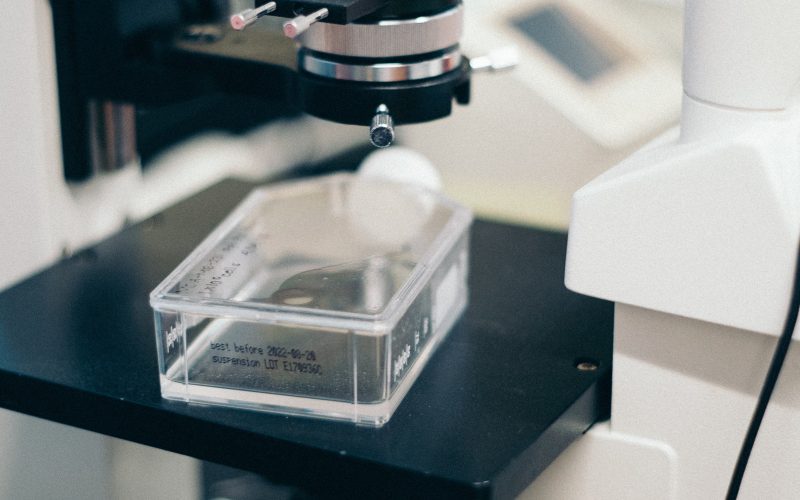Agriculture has come a long way since the early days of farming. From ancient civilizations using rudimentary tools to modern-day farmers utilizing cutting-edge technology, agriculture has been at the forefront of scientific discoveries for centuries. One such discovery that revolutionized our understanding of plants was the discovery of plant cells through the use of microscopes. In this blog post, we’ll explore how agriculture has played an integral role in scientific breakthroughs and why continued research in this field is crucial for ensuring food security and sustainability for future generations. Join us on a journey through time as we delve into the fascinating world of agricultural discoveries!
The Discovery of Plant Cells
The discovery of plant cells was a monumental moment in the field of botany. It allowed scientists to understand the structure and function of plants at a microscopic level, revealing an entirely new world of complexity that had previously been unknown.
The first recorded observation of plant cells was made by English scientist Robert Hooke in 1665 using a primitive microscope. He observed thin slices of cork and noticed small compartments which he called “cells”. However, it wasn’t until Antonie van Leeuwenhoek improved upon the microscope that scientists were able to observe living cells and their functions.
Further research into plant cells led to the development of important concepts such as cell theory, which states that all living organisms are composed of one or more cells. This breakthrough paved the way for advancements in agriculture, as farmers could now better understand how different crops grow and develop.
Today, technologies like electron microscopy allow researchers to study plant cells with incredible precision, providing insights into everything from photosynthesis to disease resistance. The discovery of plant cells may have happened centuries ago, but its impact on agricultural science is still felt today.
The Role of Agriculture in Scientific Discoveries
The field of agriculture has played a vital role in scientific discoveries throughout history. From the earliest civilizations, farmers have been experimenting with techniques to improve crop yields and increase food production. These early agricultural practices paved the way for modern agricultural research and technology.
One of the most significant contributions of agriculture to scientific discoveries is the development of plant breeding techniques. Farmers have been selectively breeding crops for thousands of years, resulting in improved yield, disease resistance, and nutritional content.
In addition to plant breeding, agriculture has also contributed significantly to our understanding of soil science and ecology. The study of soil nutrient cycling, erosion control methods, and pest management are all critical components of modern agricultural research.
Furthermore, advancements in machinery used on farms such as tractors or drones equipped with sensors allow researchers to collect more data efficiently than ever before. This information can then be analyzed using artificial intelligence algorithms that help identify patterns or anomalies within large datasets.
It’s clear that agriculture plays an essential role in scientific discovery by providing valuable insights into how we can sustainably feed a growing global population while minimizing environmental impact.
The Importance of Agricultural Research
Agricultural research plays a vital role in the development of sustainable and efficient farming practices. It helps farmers increase their yields while protecting the environment and maintaining soil health. Through agricultural research, new crops are developed that can withstand pests, diseases, droughts, and other environmental factors.
Research in agriculture also contributes to improving food quality and safety by identifying ways to minimize contamination with harmful substances such as pesticides or pathogens. This is crucial for ensuring that consumers have access to healthy and nutritious foods.
Moreover, agricultural research has significant economic benefits for both farmers and society as a whole. By improving crop yields and reducing production costs, agriculture becomes more profitable which boosts farm income. Additionally, it leads to job creation through the growth of agribusinesses that offer services like seed production or irrigation systems.
Continued investment in agricultural research is essential for meeting future challenges such as climate change or population growth. New technologies are needed to address these issues effectively. Therefore funding must be provided to support ongoing research efforts so that we can continue making progress towards greater sustainability in agriculture.
In summary, the importance of agricultural research cannot be overstated since it impacts our food supply chain from seed selection all the way up until harvest season. Without this type of scientific advancement happening on an ongoing basis within this industry; it would become increasingly difficult for farmers around the world who rely heavily upon what they produce each year just simply survive without having access critical data points backed by trustworthy evidence-based decision-making processes leading them forward into better outcomes over time!
The Future of Agricultural Discoveries
The future of agricultural discoveries is exciting and promising. With the increasing demand for food, scientists in agriculture are continuously exploring new frontiers to increase crop yield while reducing the impact on the environment.
One trend that we can expect in agricultural discovery is precision farming. Precision farming involves using technology to optimize crop production by analyzing data about soil properties, weather patterns and plant health. This technology allows farmers to make informed decisions that improve efficiency and profitability.
Another area of focus will be developing crops with higher nutritional value and disease resistance. Agricultural researchers are working hard to create plant varieties that have increased nutrient density while also being resistant to pests and diseases.
Biotechnology will continue playing a vital role in agriculture research as well – from gene editing techniques such as CRISPR-Cas9 allowing for targeted changes within an organism’s DNA, to genetic engineering creating plants with specific traits like drought or heat tolerance.
Artificial intelligence (AI) holds immense potential for agricultural discovery too! AI can help analyze large datasets quickly, predict crop yields before harvest time, detect early signs of pests/diseases and even automate farm machinery operations!
The future of agricultural discoveries looks bright! Advancements in precision farming technologies, biotechnology breakthroughs including gene editing & genetic engineering methods combined with Artificial Intelligence tools all promise better productivity & sustainability towards a more equitable world tomorrow!
Conclusion
The journey of scientific discoveries in agriculture has been a long and fruitful one. From early observations under microscopes to modern fields equipped with advanced technology, agricultural research has made significant contributions to our understanding of plant life and soil health.
As we move forward into the future, it is crucial that we continue to invest in agricultural research and support those who dedicate their lives to studying this vital field. The innovations that have already emerged from this area of study are remarkable and there is no doubt that even more groundbreaking discoveries lie ahead.
Whether its increasing crop yields or developing sustainable farming practices, the importance of agriculture in scientific progress cannot be overstated. By continuing to push boundaries and explore new ideas, we can help ensure a bright and prosperous future for both farmers and consumers alike.












